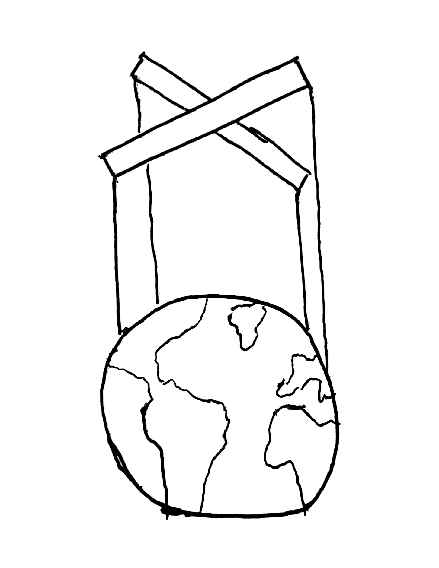
on the dichotomy of gift-giving and "awareness"
“ ‘I don’t know how you do it.’ ‘Do what?’ ‘Deal with the drops when you can see the ocean?’” – Zadie Smith, Swing Time
We’ve been given a gift.
We’re in a very unique state technologically, living in times of budding content creation, the bloom of artificial intelligence, and our now ontological dependence on technology. Everyone has the ability to create essentially anything at any time, and then display it to essentially anyone that comes across it around the world. The line between the digital and physical world has become blurred (to a point that it’s marketable). It’s remarkable.
But every gain comes with a loss, somewhere – no gift exists without its giver.
Democracy seems to be past its prime. Wars have become commonplace headlines. Inequality continues to remind people of all walks of life that no matter how hard they try, they can never really kill him. Remarkable – but for different reasons.
We’ve progressed, developed, and transformed our society so rapidly in one way, yet regressed even farther in another. It’s become a modern tragedy, this dichotomy we’ve put ourselves into. The way that you and your partner can now be with each other while three continents away, yet can’t walk alone outside due to fear of being hate crimed. The way your child can use artificial intelligence to create something revolutionary, yet has to do it in a public school that’s more segregated than it was ten years ago.
It reminds me of a quote from Harold Kushner: “When you are standing very close to a large object, all you can see is the object. Only by stepping back from it can you also see the rest of its setting around it.”
We’re standing so close to the object of technology, so immersed in this digital revolution that we’ve forgotten about the other side of it. Or, more likely, we’ve forgotten about the hundreds, thousands of objects surrounding us that are worth looking at too.
The protagonist of The Moviegoer, Binx Bolling faces a similar predicament: everyone around him stands too close to the object that he seems to be the only one who’s stepped back. The novel surrounds Binx’s “search” to find meaning through this paradox, to give him some sliver of hope in an existential life. “The search is what anyone would undertake if he were not sunk in the everydayness of his own life,” he says. “To become aware of the possibility of the search is to be onto something. Not to be onto something is to be in despair.”
I’m not claiming that we need to rid ourselves of all technology, or make complete radical change, or upend our everyday lives to make some sort of profound social proclamation. All I’m asking is that we be aware. “To become aware of the possibility of the search is to be onto something.”
To become aware of the absurdity of our situation is to be onto something. To be onto something is to take action. To take action is to change something, regardless of the size or the scope. To change something is to fulfill your role not only as a citizen, but as a human.
Still, awareness may not be enough when the tide of change threatens to dive us deeper at any second. Technology and innovations continue to evolve at breakneck speed, societal divides deepen, and the global floor becomes shakier by the minute. Awareness, despite all of its benefits, may after all not be a force against these threats, but it simply may delay the inevitable.
But even delaying the inevitable may work to our advantage. Even if the waves continue to rise, awareness of this paradox not only prevents us from drowning, but allows us to navigate amongst it.
The true struggle lies not in becoming aware, but in what we choose to do with that awareness – in guiding our actions before the flood engulfs us entirely.